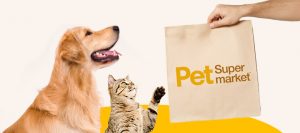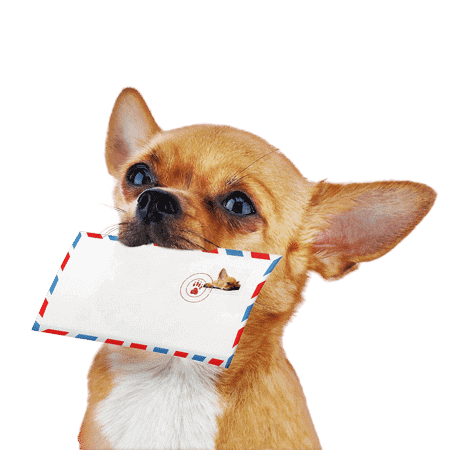What is a puppy ® school? What is the purpose, and how to choose it?
The School of Chiot®: A registered trademark
First of all, it is useful to specify that the term ” School of Chiot® ” is a trademark by its creator, Ethologist Joseph Ortega, to protect his concept and not to denature his working methods.
A canine education centre or a professional canine educator can not legally offer this service to their members/clients by naming it ” School of Chiot® ” without fulfilling the conditions laid down by the author of the method. Among these conditions, it is expected that at least one instructor/educator of the structure proposing ” School of Chiot® ” formed on the method designed by its creator.
That said, many structures have been inspired and propose it today to their members/clients without officially having the approval of the inventor of the method. Thus, to designate all these structures, we will talk about ” recreated puppies ” than a puppy® school in the rest of this article.
The recreation of puppies: What is and what is the use?
The recreation of puppies is a service offered by canine education clubs or professional canine educators in which the young animal is contacted with other dogs of all sizes, of all races, all of different sex and gender.
Under playful aspects where the puppy will have the opportunity to play and interact with these other dogs, the goal is to teach the puppy intra-specific communication, that is to say, the communication with his congeners, within one’s own species. In contact with its congeners, the puppy will learn how to behave, to communicate his peaceful intentions, to avoid a conflict or to transmit his uncomfortable emotional state. In other words, the puppy’s recess must allow the puppy to continue to learn the codes of his species (which has been initiated by his mother) and to learn to be able to stop one of his behaviours, ” Indelicers “, under pain of being” cropped ” by one of these congeners.
Attending a puppy recreation is, therefore, fully in the process of socializing its puppy vis-à-vis its congeners. This will allow him not to be afraid of other dogs in his future life and to know “Stand” in the presence of one of its congeners, not being aggressive, neither “harness” against him.
The recreation of puppies is, therefore, extremely rewarding teaching for your puppy on the one condition to choose your home structure. Otherwise, attend a recreation of puppies could prove to be counterproductive or even devastating on the coming behaviour of your pet.
How to choose your recess from puppies?
A recess of framed puppies
The “recreated puppies” is therefore very useful for the puppy … when organized correctly. To do this, it is essential that the puppies evolve in the presence of at least one adult regulatory dog (and, ideally, of several dogs according to the number of puppies to supervise) and a competent canine educator to supervise the sessions.
The regulatory dog is a well educated and well-balanced adult dog whose “work” ” will be to teach intra-specific puppy communication. Thus, this regulatory dog intervenes to stop firmly, but peacefully all the “impolite” From the puppy to him, the climbs in excitement, the brutality, the bites too supported or still the game sequences that never finish … it allows to appease and discipline the youngest and to restore order to the In the group of dogs by teaching puppies that there are limits not to cross. It also prevents certain puppies, stronger than others, do the law in tyranny weakest and, once adults become intolerant to any form of frustration. On the other hand, it also allows the shyest puppies to be harassed by others, at the risk of making them fearful vis-à-vis their congeners in adulthood or even anxious.
Indeed, it is important to accustom the puppy to various stimulations during his first months of life, but it is equally important that these experiences are always positive for them to have the expected effect on its adult behaviour.
The canine educator must be familiar with the dog intraspecific codes and must know how to differentiate a normal canine behaviour of abnormal behaviour to intervene if, however, it detects one during the session.
To summarize, you will understand it, the puppy’s recreation must be a playful moment for the puppy but should not be a ” kindergarten courts” unattended where all the garments evolve without No adults, dog and educator, never intervene to appease them or discipline them.
A recreation that accepts very young puppies
A puppy can be welcomed in a recreation of the puppy from 2 months and, usually, until his six months. But, in practice, some structures refuse to host puppies before their anti-foil vaccination is carried out, which can not be done before the three months of the animal. It’s a shame because the best period to socialize a puppy is between 1 and 3 months, a period when the puppy is very curious and where it is important to get used to various social stimulations so that he considers them as ” Banaales” adulthood. Beyond its three months, the puppy will be a little more reluctant to meetings.
Preferably, we must prefer the structures that welcome puppies from their two months.
A recreation that teaches you the basics of your puppy’s education
Also, focus on structures that, in addition to proposing this time ” recreational” At your puppy, will accompany you in the education of your puppy. Part of the session must ideally be devoted to the teaching of basic indications and the decryption of your dog’s behaviour in order to give you the keys to better understand it and interact with your dog to establish with him the most beautiful relationships. Yes, at the puppy’s school, it’s not just the puppy who has to learn new things.



